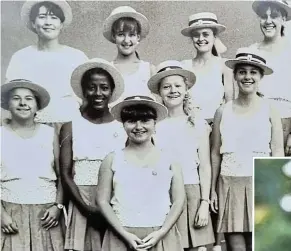Navigating Integration: Personal Journeys Through Desegregated Education

Former pupils and educators reflect on the early days of mixed-race schooling in South Africa, recounting tales of resilience, cultural adaptation, and the complexities of forging identities in historically segregated institutions.
Yolisa Pasipanodya, now a communications executive, vividly recalls her initiation into integrated schooling. As one of the pioneering black students at St. Andrew’s School for Girls, she reminisces about the challenges of acclimatizing to an unfamiliar environment, marked by cultural disparities and linguistic expectations. “It was a big adjustment… Some of us managed, others didn’t do so well,” she recounts, highlighting the profound cultural and social shifts experienced by students like herself.
Pasipanodya’s narrative is emblematic of a broader societal transformation following the dismantling of apartheid-era education policies. The repeal of the Bantu Education Act in 1991 heralded a new era of inclusivity, as black students gained access to formerly exclusive white schools. This seismic shift, however, was not devoid of obstacles, as evidenced by Pasipanodya’s journey of adaptation and perseverance.
Similarly, Cliff Midgley, a former schoolmaster at St. John’s College, offers insights into the institutional responses to desegregation. Recalling the integration of black students in the mid-1980s, he underscores the pivotal role of educators in fostering an environment of acceptance and support. “We stepped in and managed things as they happened,” he reflects, emphasizing the proactive measures taken to address systemic inequalities and facilitate the integration process.
Sue Rowe, a veteran teacher, echoes these sentiments, recounting her experiences at Cliffview Primary in Randburg. Reflecting on the evolving demographics of her classroom, she emphasizes the importance of inclusivity and compassion in nurturing a diverse student body. “You can’t be unhappy because it transfers onto the children,” she asserts, underscoring the profound impact of educators’ attitudes on fostering an inclusive learning environment.
Yet, amidst these narratives of progress and resilience, there linger poignant reminders of the challenges endured by black students navigating predominantly white spaces. Zweli Mokgata’s poignant recollections of isolation and discrimination at Weltevreden Primary serve as a sobering reminder of the entrenched prejudices that persisted even in ostensibly integrated settings. His journey from township schools to elite institutions like St. John’s College underscores the complex interplay of race, class, and privilege in shaping educational experiences.
As South Africa continues to grapple with the legacies of apartheid, these personal testimonies serve as poignant reminders of the enduring quest for equality and inclusion in the nation’s education system. Through their resilience and resolve, these individuals have not only borne witness to history but have also played a vital role in shaping a more inclusive future for generations to come.













